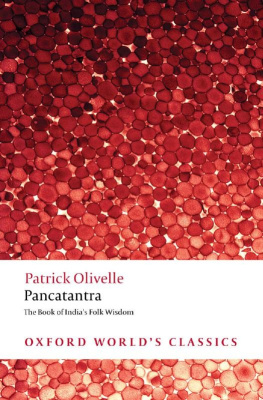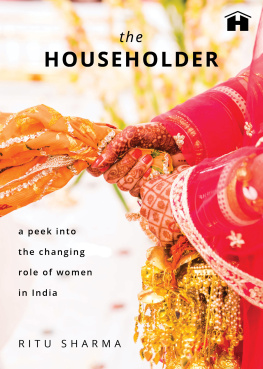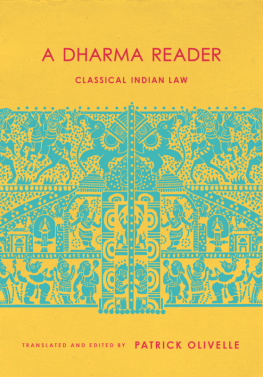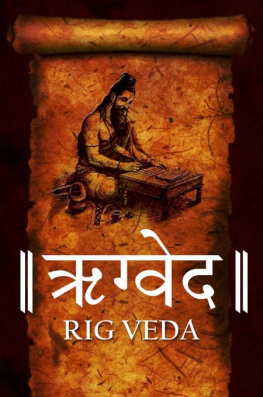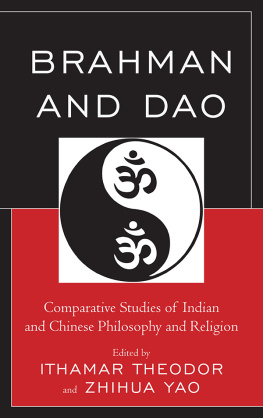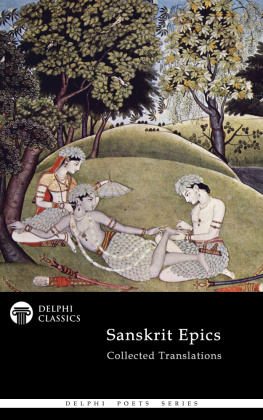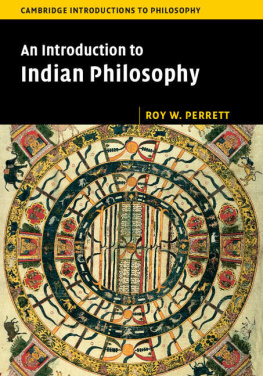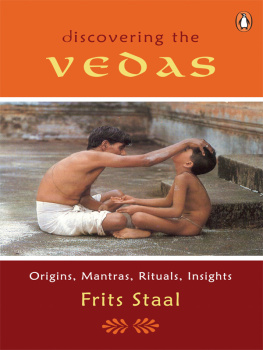Ghastha
Ghastha
The Householder in Ancient Indian Religious Culture

Edited by
PATRICK OLIVELLE


Oxford University Press is a department of the University of Oxford. It furthers the Universitys objective of excellence in research, scholarship, and education by publishing worldwide. Oxford is a registered trade mark of Oxford University Press in the UK and certain other countries.
Published in the United States of America by Oxford University Press
198 Madison Avenue, New York, NY 10016, United States of America.
Oxford University Press 2019
All rights reserved. No part of this publication may be reproduced, stored in a retrieval system, or transmitted, in any form or by any means, without the prior permission in writing of Oxford University Press, or as expressly permitted by law, by license, or under terms agreed with the appropriate reproduction rights organization. Inquiries concerning reproduction outside the scope of the above should be sent to the Rights Department, Oxford University Press, at the address above.
You must not circulate this work in any other form and you must impose this same condition on any acquirer.
CIP data is on file at the Library of Congress
ISBN 9780190696153
eISBN 9780190696177
Contents
Patrick Olivelle
Whitney Cox
Stephanie W. Jamison
Joel P. Brereton
Patrick Olivelle
Oliver Freiberger
Timothy Lubin
Patrick Olivelle
David Brick
Mark McClish
Adam Bowles
Aaron Sherraden
Csaba Dezs
As I will point out in greater detail in the Introduction, this book owes its origin to the pioneering work of Stephanie Jamison, who also authored its first and seminal chapter. My biggest thanks, therefore, goes to Stephanie. This volume is also the product of a workshop on the ghastha held in the Department of Asian Studies, The University of Texas at Austin, in February 2016, with the participation of seven of the contributors to this volume. I want to thank the department, its chair Martha Selby, and the convener Donald Davis for facilitating that workshop.
Thanks are due in a special way to the eleven contributors, who took time off from their other work and responsibilities to produce fine pieces of scholarship: Adam Bowles, Joel P. Brereton, David Brick, Csaba Dezs, Oliver Freiberger, Stephanie Jamison, Timothy Lubin, Claire Maes, Mark McClish, and Aaron Sherraden. Finally, Whitney Cox not only served as an external reader for the Oxford University Press but also generously agreed to write a Prologue to this volume and to undertake the goal he set out for the contributors in his readers report: one way to frame this collection as a whole would be as an extended demonstration of how collective philological scholarship operates in order to create new knowledge. Finally, I want to thank the Oxford University Press and, in particular, our editor Cynthia Read for her willingness to take on this philological experiment.
Patrick Olivelle
Austin, Texas
Adam Bowles is Senior Lecturer in Asian Religions at the University of Queensland, Australia. His publications include Dharma, Disorder and the Political in Ancient India: The paddharmaparvan of the Mahbhrata (2007); Maha-bharata, Book Eight: Karna (2 parts 2006, 2008); Dharma and Custom: Semantic Persistence, Semantic Change and the Anxieties of the Principled Few (2015).
Joel P. Brereton is Professor of Sanskrit at the University of Texas at Austin. His publications include the three-volume translation of the Rig Veda (with Stephanie Jamison, 2014); Tat Tvam Asi in Context (1986); Edifying Puzzlement: gveda 10.129 and the Uses of Enigma (1999); Gods Work: The bhus in the gveda (2012); and Word Positioning in gvedic Poetry (2016).
David Brick is Assistant Professor of Sanskrit at the University of Michigan. His publications include Brahmanical Theories of the Gift: A Critical Edition and Annotated Translation of the Dnaka of the Ktyakalpataru (2015); Transforming Tradition into Texts: The Early Development of Smti : (2006); The Dharmastric Debate on Widow-Burning (2010); and Bho as a Linguistic Marker of Brahmanical Identity (2016).
; and coedited volumes, South Asian Texts in History: Critical Engagements with Sheldon Pollock (2011) and Bilingual Discourse and Cross-cultural Fertilisation: Sanskrit and Tamil in Medieval India (2013).
Csaba Dezs is Senior Lecturer at the Department of Indian Studies, Etvs Lornd University, Budapest, Hungary. His publications include the critical edition and English translation of Bhaa Jayantas gamaambara ; (with Somadeva Vasudeva) a new edition and English translation of the Caturbh , four Gupta-period comic monologue plays; and (with Dominic Goodall) a new critical edition and English verse translation of Dmodaraguptas Kuanmata .
Oliver Freiberger is Associate Professor of Asian Studies and Religious Studies at the University of Texas at Austin. His publications include Considering Comparison: A Method for Religious Studies (2019); the edited volume, Methodical Aspects of Comparison (2018); Der Askesediskurs in der Religionsgeschichte (2009); the edited volume, Asceticism and Its Critics (2006); and Der Orden in der Lehre: Zur religisen Deutung des Sagha im frhen Buddhismus (2000).
Stephanie W. Jamison is Professor of Asian Languages and Culture and of Indo-European Studies at the University of California at Los Angeles. Her publications include the three-volume translation of the Rig Veda (with Joel Brereton, 2014); Sacrificed Wife / Sacrificers Wife: Women, Ritual, and Hospitality in Ancient India (1996), and The Ravenous Hyenas and the Wounded Sun: Myth and Ritual in Ancient India (1991).
, and his publications include Legal Diglossia: Modeling Discursive Practices in Premodern Indic Law (2013); Writing and the Recognition of Customary Law in Premodern India and Java (2015); and Customary Practice in the Vedic Ritual Codes as an Emergent Legal Principle (2016).
Claire Maes is a Postdoctoral Fellow at the University of Texas at Austin. A specialist in early Jain and Buddhist monasticism, her publications include: A Camouflaged Debate Between Early Buddhists and Jains. A Critical Analysis of Buddhist Monastic Rules Laid Down to Protect One-Sensed Facultied Life (2011); and Flirtation with the Other: An Examination of the Processes of Othering in the Pli Vinaya (2016); and Dialogues With(in) the Pli Vinaya: A Research into the Dynamics and Dialectics of the Pli Vinayas Ascetic Other, with a Special Focus on the Jain Ascetic Other (Dissertation, 2015).
); Is the Arthastra a Mauryan Document? (2012); The Dependence of Manus Seventh Chapter on Kauilyas Arthastra (2014); The Four Feet of Legal Procedure and the Origins of Jurisprudence in Ancient India (with Patrick Olivelle, 2015); and The History of the Arthastra: Sovereignty and Sacred Law in Anciet India (2019).
; and The rama System (1993).
Aaron Sherraden is a doctoral student at the University of Texas at Austin. His dissertation focuses on the social and historical evolution of the Sanskrit epic


